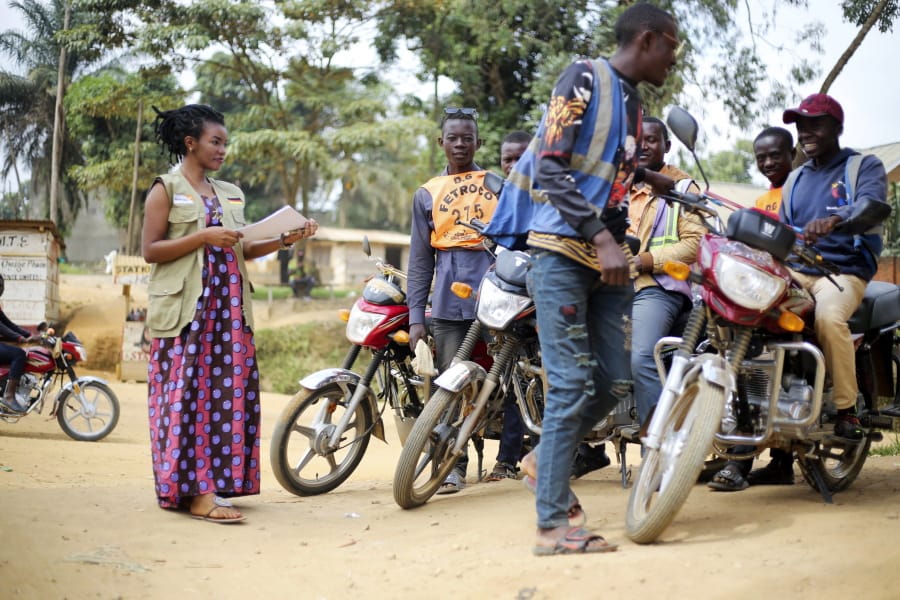BENI, Congo — Congo has been battling an Ebola outbreak that has killed thousands of people for more than 18 months, and now it must also face a new scourge: the coronavirus pandemic.
Ebola has left those living in the country’s east weary and fearful, and, just as they were preparing to declare an end to the outbreak, a new case popped up. Now, they will now have to manage both threats at once.
The new virus has overwhelmed some of the world’s best hospital systems in Europe and ripped through communities in New York. In Congo, it could spread unchecked in a country that has endured decades of conflict, where corruption has left the population largely impoverished despite mineral wealth, and where mistrust of authority is so entrenched that health workers have been killed during the Ebola outbreak. It’s also unclear how forthcoming international support will be at a time when the whole world is battling the coronavirus.
“It all feels like one big storm,” said Martine Milonde, a Congolese community mobilizer who works with the aid group World Vision in Beni, which has been the epicenter of the Ebola outbreak. “Truly, this is a crisis within a crisis within a crisis. The community suffers from insecurity, and suffered under Ebola, and now may have to face COVID-19.”
In early March, an Ebola patient whom many hoped would be the last was discharged, and the outbreak was supposed to be officially declared over today. But the World Health Organization on Friday announced a new case in Beni.
The outbreak has claimed more than 2,260 lives since August 2018 — the second largest the world has ever seen, after the 2014-2016 outbreak in West Africa.
Still, there is some hope: Many of the tools used to fight Ebola — hand-washing and social distancing chief among them — are also key to combating the coronavirus.
In Beni, which has reported two cases of the new coronavirus, “the communities here hold onto some hope that they are going to overcome this pandemic the way they had been working to overcome Ebola,” Milonde said. “They are counting on the caution, vigilance and hygiene practices that they have been performing to save their families.”
Community advocates in Beni — who walk around with megaphones to talk about Ebola — have started to include warnings about the coronavirus.
Messages explaining COVID-19, the disease caused by the virus, and where to go if sick are being spread on radio stations, through text message blasts and by religious leaders. Schools, churches and mosques are already armed with hand-washing kits.
Beni’s mayor, Nyonyi Bwanakawa, says many of the measures will be familiar — but the recommendations to stay home are more stringent than what is required for Ebola.
Unlike Ebola, which kills about half of the people it infects, the new coronavirus causes mostly mild or moderate symptoms in about 80 percent of people. Spreading Ebola typically requires an exchange of bodily fluids, and people have often been infected when caring for loved ones or mourning in funerals that involve close contact with the body. In contrast, the new coronavirus is far more contagious and mostly spread by people coughing or sneezing.



